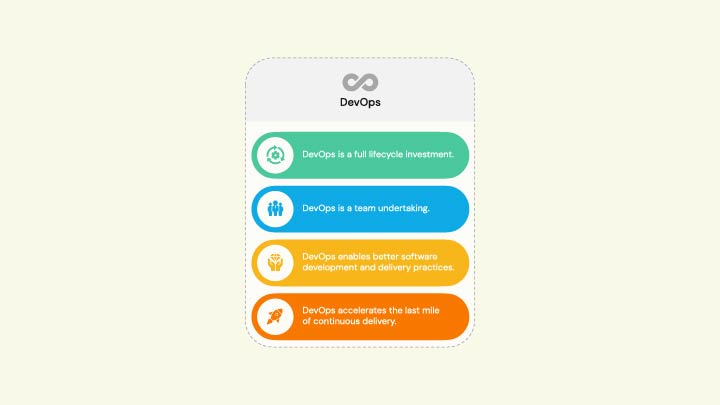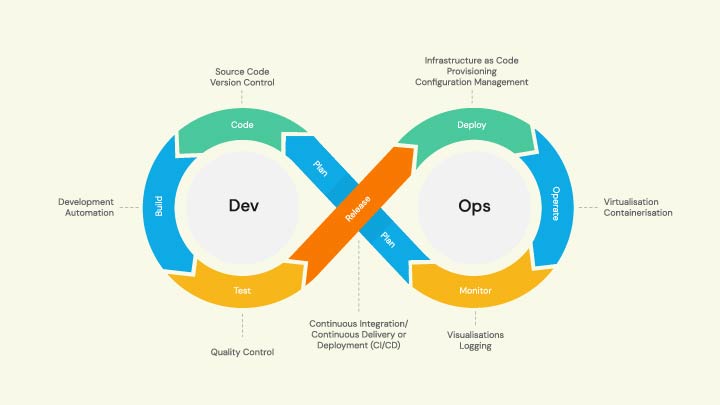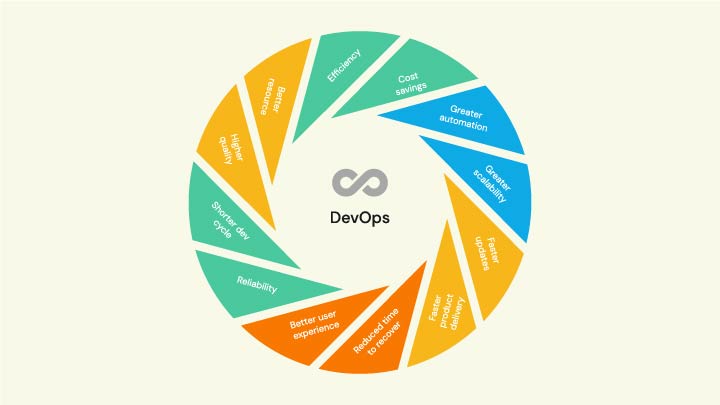- By
- September 24, 2025


If you’ve just stepped into the field of software development, and are starting to explore different programming techniques, you must have come across a lot of terms and phrases. One of them is a trending development methodology called “DevOps”. What is DevOps, exactly? How does it help programmers, and is it a skill worth learning? In our article, we will break it all down for you.
DevOps is not a technology but a methodology or software development approach with which superior quality software can be developed quickly. DevOps is an extension of Agile Methodology that unites the often-separate functions of software development and operations into a single, integrated, and continuous process. It leverages people, processes, and technology to stimulate innovation across the entire software development and release process. Development and Operation must act and feel like they are a single team. DevOps helps increase an organization’s speed to deliver applications and services. It also allows organizations to serve their customers better and compete more strongly in the market.

There are four components of DevOps which include:
It refers to a practice that includes regular integration of code changes to a source code. This practice prioritizes committing small code changes frequently rather than occasional big changes.
Every team member pushes code to a common build server that performs an automated build. It helps detect issues early in the process. It also ensures that all integrated modules function as expected. This means the QA team has to work on minor bugs on an ongoing basis rather than deal with a cluster of code failures in one go.
It pushes the code built in this stage into production. This process also includes filtering the code through various stages like QA, Staging, and Production.
This process is automated and is generated by every code built. The new code is automatically tested, verified, and released into production. Obviously, this results in quicker time to market, less risk, and reduced costs due to more automation. Furthermore, it helps in getting quicker feedback from end-users on a finished product.
DevOps doesn’t work without continuous testing. A number of tests need to be conducted for proper validation of code and integration with the existing codebase. It is compulsory to ensure that the software works according to requirements and is not interrupted by bugs or irregularities.
When automated tests confirm that the code works without errors, the code is moved to QA for the next round of verification and approval. In the QA environment, functional tests are executed, after which the code is pushed to the staging environment. More tests are run and if the code passes, it is released to the production servers. The code needs to be tested on every step, and the process of testing needs to be automated before it can go to manual testers.
While code is being deployed via the CI/CD pipeline to the production environment, the operations team will constantly monitor the environment to ensure positive levels of uptime, stability, and availability. This is known as Continuous Monitoring.
Operations teams will use their own software to monitor deployed applications for bugs and issues. This is best done when Operation works with the Development team to build tools that can best monitor and analyze such issues.

DevOps provides the following advantages to development and testing teams:

DevOps is a popular methodology that aims to connect developers and operators into a cohesive unit. It’s uniquely differentiated from traditional IT operations and complements (but is not the same as) agile.
When you implement it, it may take some effort. The results speak for themselves. In a world where release cycles and deadlines keep getting shorter, DevOps saves time, conserves human effort, and guarantees high product quality.
Also Read: BUILDUP THE BUSINESS WITH EMAIL MARKETING